US mayoral election
| |||||||||||||||||
| |||||||||||||||||
| |||||||||||||||||
The Cleveland mayoral election of 1939 saw the re-election of the Republican, Harold Hitz Burton to a third term. He became the Mayor of Cleveland, over the Democratic John O'Donnell.
| |||||||||||||||||
| |||||||||||||||||
| |||||||||||||||||
| Elections in Ohio |
|---|
 |
The Cleveland mayoral election of 1939 saw the re-election of the Republican, Harold Hitz Burton to a third term. He became the Mayor of Cleveland, over the Democratic John O'Donnell.
| Party | Candidate | Votes | % | |
|---|---|---|---|---|
| Republican | Harold Hitz Burton (incumbent) | 141,858 | 57.57% | |
| Democratic | John O'Donnell | 104,551 | 42.43% | |
| Turnout | 246,409 | |||

Thomas Aloysius Burke was an American politician from Ohio. A member of the Democratic Party, he served as the 48th mayor of Cleveland, Ohio, from 1946 to 1953 and in the United States Senate from November 10, 1953 until December 2, 1954. Cleveland Burke Lakefront Airport is named after him.

The mayor of Cleveland is the head of the executive branch of government of the City of Cleveland, Ohio. As the chief executive in Cleveland's mayor–council system, the mayor oversees all city services and is "responsible for enforcing the city charter, city ordinances, and the laws of the State of Ohio." The mayor's office is located at Cleveland City Hall at 601 Lakeside Avenue in Downtown Cleveland. Since 1836, the city has had a total of 54 mayors, including the city's current mayor, Justin Bibb, encompassing 58 mayoral administrations, as four mayors have served in non-consecutive terms.
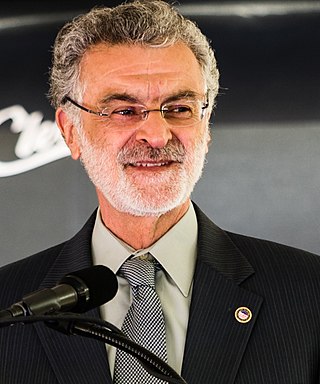
Frank George Jackson is an American lawyer and politician who served as the 57th Mayor of Cleveland, Ohio from 2006 to 2022. He was first elected on November 8, 2005, unseating incumbent Jane Campbell, and re-elected in 2009, 2013, and 2017. Having served four full terms, he is the longest-serving mayor in Cleveland history. On May 6, 2021, he announced he would not seek re-election in 2021.

The 1978 Cleveland recall election determined whether or not the 53rd Mayor of Cleveland, Dennis Kucinich, would be removed from office. It was the first mayoral recall election in the city's history.

The 2005 Cleveland mayoral election took place on November 8, 2005, to elect the Mayor of Cleveland, Ohio. The election was officially nonpartisan, with the top two candidates from the October 4 primary advancing to the general election, regardless of party.

The 2009 Cleveland mayoral election took place on November 3, 2009, to elect the Mayor of Cleveland, Ohio. The election was officially nonpartisan, with the top two candidates from the September 8 primary advancing to the general election, regardless of party.
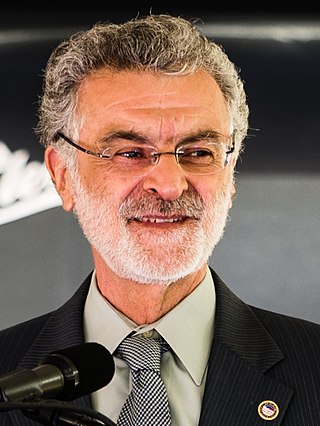
The 2013 Cleveland mayoral election took place on November 5, 2013, to elect the Mayor of Cleveland, Ohio. Usually a nonpartisan primary is held where the top two candidates move on to the general election, however, incumbent mayor Frank G. Jackson and businessman Kenneth A. Lanci were the only two candidates to file, so no primary election was held.

The 2001 Cleveland mayoral election took place on November 6, 2001, to elect the Mayor of Cleveland, Ohio. The election was officially nonpartisan, with the top two candidates from the October 2 primary advancing to the general election, regardless of party.

The 2017 Cleveland mayoral election took place on November 7, 2017, to elect the Mayor of Cleveland, Ohio. The election was officially nonpartisan, with the top two candidates from the September 12 primary election advancing to the general election, regardless of party. Incumbent Democratic Mayor Frank G. Jackson won reelection to a fourth term.

The 1979 Cleveland mayoral election took place on November 6, 1979, to elect the Mayor of Cleveland, Ohio. George Voinovich defeated incumbent mayor Dennis Kucinich. The election was officially nonpartisan, with the top two candidates from the October 2 primary advancing to the general election.

The 1981 Cleveland mayoral election took place on November 3, 1981, to elect the Mayor of Cleveland, Ohio. The election was officially nonpartisan, with the top two candidates from the September 29 primary advancing to the general election.

The Cleveland mayoral election of 1967 saw the election of Carl Stokes.
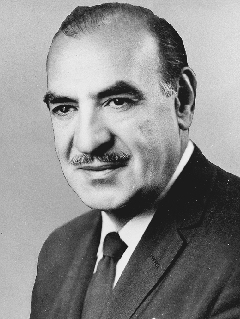
The Cleveland mayoral election of 1961 saw the fourth re-election of incumbent mayor Anthony J. Celebrezze. His Republican opponent was Albina Cermak, the first woman to run for mayor of Cleveland.
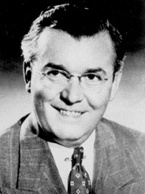
The Cleveland mayoral election of 1947 saw the election of Thomas A. Burke as Mayor of Cleveland, defeating Republican challenger Eliot Ness.

The Buffalo mayoral election of 1881 saw the election of former Erie County Sheriff Grover Cleveland, who defeated architect and alderman Milton Beebe by what was considered a broad margin.

The 2021 Cleveland mayoral election took place on November 2, 2021, to elect the Mayor of Cleveland, Ohio. The election was officially nonpartisan, with the top two candidates from the September 14 primary election advancing to the general election, regardless of party. Incumbent Democratic Mayor Frank G. Jackson was eligible to run for reelection to a fifth term, but instead chose to retire. Justin Bibb was elected the 58th mayor of Cleveland in the general election.

The Cleveland mayoral election of 1973 saw the reelection of Ralph Perk.
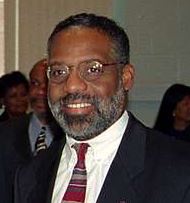
The 1997 Cleveland mayoral election took place on November 4, 1997, to elect the Mayor of Cleveland, Ohio. Incumbent mayor Michael R. White was reelected to a third consecutive term, defeating city councilwoman Helen Knipe Smith.

The 2021 Cleveland City Council election was held on November 2, 2021. The primary elections were held on September 14, 2021. All 17 seats on Cleveland City Council were up for election for four-year terms. Elections in Cleveland are officially nonpartisan, with the top two candidates from the primary election advancing to the general election, regardless of party.
The 2022 Norman, Oklahoma mayoral election was held on February 8, 2022, to elect the next mayor of Norman, Oklahoma. Since there was no candidate that received a majority of votes in the initial round of the election, a runoff election was held. In the runoff election, incumbent Democratic mayor Breea Clark was defeated by Republican Larry Heikkila.